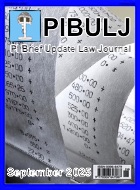The Limits of the Extended Fixed Recoverable Costs Regime - Amy Lanham Coles, Temple Garden Chambers

29/09/23. Much has already been said about the incoming extended fixed recoverable costs (“FRC”) regime and accompanying intermediate track which take effect from 1 October 2023. This piece does not seek to set out the extensive changes or to summarise the rules which have been released alongside guidance in draft form. Instead, it will hopefully serve as a reminder about what the new regime does not extend to, including by reference to outstanding issues highlighted in the recent “Fixed recoverable costs: consultation on issues relating to the new regime”. References to the CPR within this piece are to provisions which will apply from 1 October 2023.
Firstly, a reminder for personal injury practitioners that the new regime applies to personal injury claims where the cause of action accrues on or after 1 October 2023 and to disease claims where the letter of claim has not been sent to the defendant before 1 October 2023 (The Civil Procedure (Amendment No. 2) Rules 2023, r 2(2)). This is an explicit derogation from the starting point which is that the new regime applies to claims issued on or after 1 October 2023.
Secondly, the regime does not apply to Part 8 proceedings. CPR r 8.9(c) will continue to apply, such that Part 8 proceedings shall be treated as allocated to the multi-track. That said, the outstanding consultation is exploring the prospect of Part 8 costs-only proceedings coming into scope for FRC.
Thirdly, as per CPR r 45.1(6) the FRC regime for the fast and intermediate track will not apply to protected parties as defined by CPR Part 21. Relatedly, the regime introduces a new vulnerability provision, allowing for a derogation from the usual FRC where a party or witness is vulnerable, and this has necessitated additional work on the case (CPR r 45.10).
Fourthly, there remain specific categories of claim - typically more complex - that will remain exempt from the fast and intermediate tracks. These are listed at CPR r 26.9(10), read in conjunction with r 26.9(11). As has been the subject of much discussion, this includes some but not all clinical negligence claims. Clinical negligence claims where breach of duty and causation have been admitted can therefore be subject to the FRC regime. Note that the Department of Health and Social Care is additionally developing rules for a new Lower Damages Clinical Negligence Claim FRC (“LDFRC”) scheme, but these have not been formalised and there remains an outstanding supplementary consultation specifically on disbursements.
Finally, the regime does not prescriptively define the “exceptional circumstances” or the “unreasonable behaviour” that will justify a derogation from usual costs rules (as per CPR r 45.9(1) & r 45.13(1)). Whilst these terms do not exist in a vacuum, they are nevertheless likely to become hotly contested in future litigation.
Image ©iStockphoto.com/DNY59












![Appeal judge rules that credit hire company has no costs liability following a finding of fundamental dishonesty in personal injury case: RSA v. Fastrack Solutions Limited [2023] 4 WLUK 92 - David Bowden, Erimus Chambers](/content/images/resized/images/stories/carkeys_72_72.jpg)


